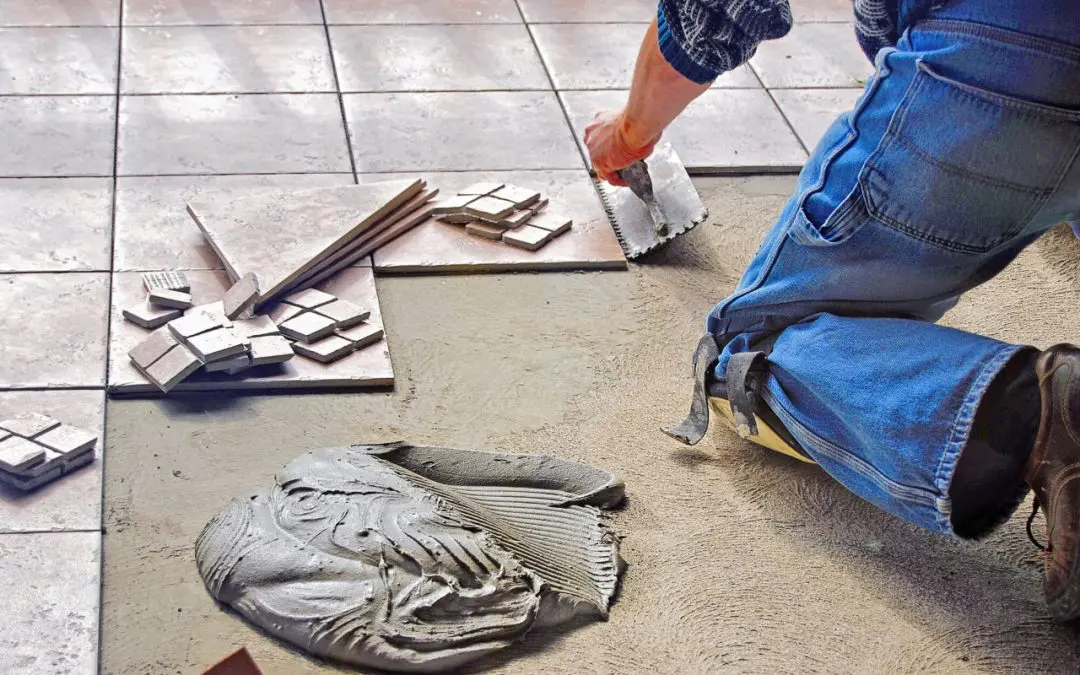As homeowners, we want our living spaces to be comfortable and functional. One way to achieve this is by selecting the right flooring. Many materials are available, from ceramic tiles to hardwood to vinyl and carpet. However, each has unique features, advantages, and disadvantages. It’s helpful to learn about different flooring materials for your home and their benefits to make an informed decision. Here are four common options for flooring and their advantages.
Flooring Materials for Your Home
1. Hardwood Flooring
For centuries, hardwood floors have been a popular choice with homeowners for their durability and beauty. Hardwood comes in different species, colors, and finishes to match any home décor. They’re easy to clean and maintain and last a long time with proper care.
Also, hardwood floors are hypoallergenic, making them an excellent option for people with allergies. They add value to your home, making it stand out in the real estate market. However, hardwood floors are costly and not ideal for moist areas like the bathrooms and kitchen.
2. Ceramic and Porcelain Tiles
Tiles are versatile and work well in various rooms, such as the bathroom, kitchen, and hallway. They come in many sizes, shapes, and colors and are easy to clean. Ceramic and porcelain tiles can last for years without major maintenance. They’re also water-resistant, making them an ideal choice for areas with moisture. However, they can be slippery when wet, and tile is cold and hard underfoot.
3. Vinyl Flooring Materials for Your Home
Vinyl is a cost-effective and durable flooring option that can mimic the look of other materials like hardwood, tile, and stone. It’s water-resistant and easy to clean, making it an excellent choice for high-traffic areas like the playroom and mudroom. Vinyl flooring comes in many patterns and colors and is comfortable to stand on. However, vinyl flooring can dent and scratch easily, and it’s not as eco-friendly as other flooring materials.
4. Carpeting
Carpet is a soft and comfortable flooring option that adds warmth to any room. It’s perfect for bedrooms, living rooms, and playrooms because it’s cushioned and cozy. Carpeting comes in many colors, patterns, and textures, allowing you to be creative with your home décor.
This flooring material is excellent for insulating the home and absorbing noise, making carpet ideal for busy households. However, carpets can stain easily and be challenging to clean. Also, they’re not suitable for areas with moisture, as they can develop mold and mildew.
Choosing the right flooring material is an important decision that affects your home’s overall look, feel, and value. Each flooring material has benefits, so you can select one that suits your lifestyle, preferences, and budget. Consult a flooring professional to help you make the right decision for your living spaces and maintain your flooring to keep it looking beautiful for years.
FAQs
1. Can I use radiant heating with any of the mentioned flooring materials?
Answer: Yes, radiant heating can be installed with ceramic or porcelain tiles and certain hardwood flooring. Consult with a professional to ensure compatibility and proper insulation for radiant heating systems.
2. Are there eco-friendly options within the vinyl flooring category?
Answer: Some manufacturers offer eco-friendly vinyl flooring options that use recycled or recyclable materials. Some luxury vinyl flooring (LVT) is also made with sustainable practices.
3. How can I address the issue of slipperiness on ceramic or porcelain tile floors?
Answer: Use rugs or mats with non-slip backing to enhance traction on tile floors, especially in moisture-prone areas. Alternatively, opt for textured or matte-finish tiles that provide a better grip.
4. Can I install hardwood floors in a basement?
Answer: Generally, traditional hardwood is not recommended for basements due to moisture issues. However, engineered hardwood is more moisture-resistant and a suitable alternative for below-grade spaces.
5. What are creative ways to incorporate carpeting in areas with moisture concerns?
Answer: Use indoor-outdoor rugs or carpet tiles in areas where moisture is a concern. These materials can withstand moisture and are easy to replace if damaged.
Drew Inspection Service offers professional home inspections to customers in South Dakota. If you’re buying or selling a home, contact us to request our services.

